In Jeb Bush ad “Leader”, he says he’ll take out ISIS

It’s not exactly news that Jeb Bush is having trouble breaking through in the polls. In a survey released on Friday by CNN/ORC, the former Florida Governor is mired at just 3 percent nationally. He’s not doing much better in Iowa, where a Monmouth University poll showed him at 4 percent on Monday. But nobody is on the air more than Bush, thanks to the financial resources that his Super PAC Right to Rise has at its disposal. His latest ad is called, “Leader,” where he says “we are what war with Islamic terror.” Watch:
Type in jebbush.com, get Donald Trump’s presidential campaign page

A website containing GOP presidential candidate Jeb Bush‘s name is mysteriously redirecting users to rival Donald Trump‘s campaign website. Typing in www.Jebbush.com pulls up the front page of www.DonaldJTrump.com, including a photo of the billionaire real estate developer flashing a victory sign and his slogan, “Make America great again.” The registration of the jebbush.com domain is masked, so it’s not possible to see who set up the redirect. Trump spokeswoman Hope Hicks said in an email that “the campaign is not involved” in the mysterious setup. The former Florida governor’s official campaign website is www.Jeb2016.com. Republished with permission of the Associated Press.
Donald Trump calls for ‘complete shutdown’ on Muslims entering U.S.

Republican presidential candidate Donald Trump called Monday for a “total and complete shutdown of Muslims entering the United States.” The proposed ban would stand “until our country’s representatives can figure out what is going on,” his campaign said in a statement. The statement added that Trump’s proposal comes in response to the level of hatred among “large segments of the Muslim population” toward Americans. “Until we are able to determine and understand this problem and the dangerous threat it poses, our country cannot be the victims of horrendous attacks by people that believe only in jihad, and have no sense of reason or respect for human life,” Trump said in the statement. He added on Twitter: “Just put out a very important policy statement on the extraordinary influx of hatred & danger coming into our country. We must be vigilant!” Trump campaign manager Corey Lewandowski said Trump’s proposed ban would apply to “everybody,” including Muslims seeking immigration visas as well as tourists seeking to enter the country. He did not respond to questions about whether it would also include Muslims who are U.S. citizens and travel outside of the country, or how a determination of someone’s religion might be made by customs and border officials. In response to a request for additional detail, Trump said via a campaign spokeswoman: “Because I am so politically correct, I would never be the one to say. You figure it out!” Trump’s proposal comes a day after President Barack Obama spoke to the nation from the Oval Office in the wake of the shootings in San Bernardino, California, which Obama said was “an act of terrorism designed to kill innocent people.” The FBI said Monday the Muslim couple who carried out the massacre had been radicalized and had taken target practice at area gun ranges, in one case within days of the attack last week that killed 14 people. Republished with permission of the Associated Press.
Major networks spent 14 hours on candidate coverage in 2015, report shows

Major networks have already spent more than 14 hours of nightly news airtime covering presidential candidates this year, according to a report detailing broadcast coverage of 2016 presidential candidates. The Tyndall Report, which tallies coverage from ABC, NBC and CBS, found the big three had spent a combined 857 minutes covering 2016 presidential campaigns during their nightly newscasts through the first 11 months of 2015. The figure is high enough to surpass penultimate year coverage totals in six of the last seven presidential election cycles. The lead up to the 2008 election, which also saw a two-term commander in chief exit the White House, was the only cycle to get more coverage. NBC led its rivals with 349 minutes of campaign coverage over the past 11 months. ABC logged 261 minutes while CBS has featured 247 minutes of coverage during its nightly newscasts. Republican presidential candidate Donald Trump has accounted for 27 percent of all network election coverage — about 234 minutes — this year. The real estate magnate’s campaign has received constant coverage since he entered the race in June, whether for policy positions or his holdout tactics leading up to the Republican debates. Coincidentally, Trump’s poll numbers have hovered around the 27 percent range, giving him the highest support among the crowded Republican field. On the whole, GOP campaigns combined for 570 minutes of coverage compared to 226 minutes for the Democrats, which have three candidates still in the race. Florida Gov. Jeb Bush, who just a few months ago was figured to be the GOP front-runner, got the second most coverage in the Republican field with 56 minutes, narrowly edging out retired neurosurgeon Ben Carson, who accounted for 54 minutes of airtime. Florida Sen. Marco Rubio came in third with 22 minutes, followed by Texas Sen. Ted Cruz with just seven minutes. Across the aisle, former Secretary of State Hillary Clinton topped the Democratic field with 113 minutes of coverage. That total, however, doesn’t include the 88 minutes networks spent reporting on the controversy surrounding her use of a private email server during her tenure in the State Department, nor does it include 29 minutes of airtime used to cover investigations into the Benghazi Consulate attack. Other Democratic candidates didn’t fare near as well. Independent Vermont Sen. Bernie Sanders, Clinton’s closest competition in the primary race, received a combined 10 minutes of coverage from the three major networks — less than a fifth of the Vice President Joe Biden’s airtime, despite him never formally entering the race. Former Maryland Gov. Martin O’Malley, who has hovered in the low single digits in most polls of Democratic voters, had no coverage according to the report.
Ted Cruz takes lead in Iowa in new Monmouth University poll

For the first time this year, Ted Cruz leads in Iowa, according to a new Monmouth University poll released on Monday. The Texas Senator gets 24 percent among likely to participate in the Iowa caucus scheduled for next February. That’s a five-point leader over Donald Trump, who is in second place with 19 percent, followed closely by Marco Rubio with 17 percent. Ben Carson is fourth with 13 percent, followed by Jeb Bush at 6 percent. Rand Paul is at 4 percent, while Carly Fiorina and John Kasich earn 3 percent each. None of the other six candidates tested in the poll draws more than 2 percent support. The poll indicates that while Cruz is surging, Ben Carson’s support in Iowa has been cratering. Carson led the Monmouth Iowa poll two months ago, but he’s dropped 19 percentage points since October. Cruz, on the other hand, has jumped by 14 points in the past two months. Marco Rubio is also rising, garnering 7 percent. Jeb Bush’s 6 percent is similar to what he polled there two months ago. “This marks the first time Ted Cruz has held a lead in any of the crucial early states. As Ben Carson’s stock has fallen, Cruz has been able to corral most of those voters,” said Patrick Murray, director of the independent Monmouth University Polling Institute in West Long Branch, NJ. “Congressman (Steve) King’s endorsement may not be the primary reason for this swing, but it certainly put a stamp on the Cruz surge in Iowa.” About 1-in-7 voters in the poll sample are non-GOP voters who say they are likely to caucus as Republicans in February. Trump holds 30 percent of this group’s support, compared to 21 support for Cruz, 15 percent for Carson, and 10 percent for Rubio. About 7-in-10 voters in the sample, though, regularly cast GOP primary ballots. Among this more probable group of voters, Cruz (25%) and Rubio (21%) garner greater support than Trump (16%) and Carson (13%). “Trump will need a huge organizational effort to get independent voters to show up in a contest where they have historically participated in small numbers. Without this dynamic, the underlying fundamentals appear to favor Cruz and Rubio,” said Murray.
Alabama reacts to President Obama’s terrorism address
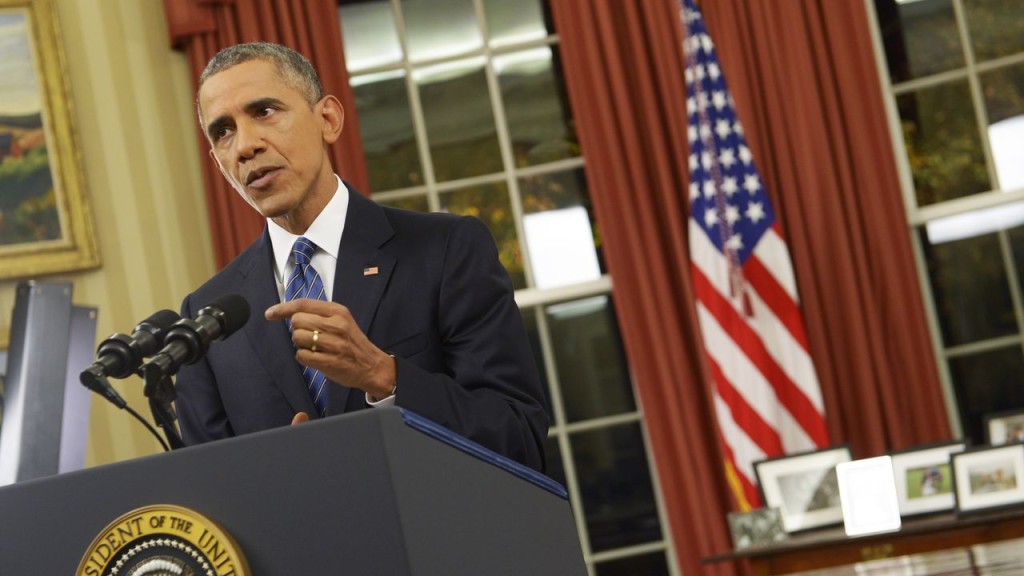
President Barack Obama took to the airwaves Sunday night in a rare Oval Office address to the nation calling last week’s mass shooting in San Bernardino, California that left 14 dead an “act of terrorism designed to kill innocent people.” The president offered no new details on the investigation into the San Bernardino attack, saying “so far, we have no evidence that the killers were directed by a terrorist organization overseas or that they were part of a broader conspiracy here at home.” The speech — aimed at reassuring a nervous nation and only the third address from the Oval Office during his Presidency — was his most passionate denunciation of ISIS to date, vowing to “destroy” the group. However, it failed to announce an overhaul of a policy that many critics have deemed insufficient to take on the evolving threat. Obama also urged Congress to adopt new restrictions on assault weapons and ban citizens on no-fly lists from being able to purchase firearms. Alabama politicians were quick to weigh in: U.S. Rep. Bradley Byrne (AL-01): Tomorrow is December 7th, a day that will live in infamy because our nation was attacked at Pearl Harbor by an enemy we failed to fully understand. I worry we are making the same mistake today when it comes to Islamic extremism. The President’s speech tonight offered nothing new in the way of a strategy to defeat this enemy. We need a clear strategy that will ensure our enemy is defeated in the Middle East, on social media, and here at home. More political speeches won’t solve the problem. We need action from our Commander-in-Chief. On Twitter: The President outlined little in the way of a strategy or new approach to defeat this vile enemy known as Islamic extremism. — Rep. Bradley Byrne (@RepByrne) December 7, 2015 U.S. Rep. Martha Roby (AL-02): Americans are rightfully concerned about the growing threat posed by radical Islamic terrorism, and I’m glad President Obama chose to address the nation. I’m disappointed that, once again, the president did not lay out a clear strategy for actually defeating ISIS. Repeating old talking points and deflecting blame does not demonstrate the kind of leadership Americans want and need in a moment like this. I agree that Congress should pass an Authorization of Military Force specific to ISIS, and I have co-sponsored a straightforward resolution that can move forward tomorrow. However, many in Congress are understandably reluctant to authorize military force when our Commander-in-Chief repeatedly fails to demonstrate a clear strategy for confronting and defeating the ISIS threat. President Obama is wrong to use the terrorist threat to advance his anti-gun agenda. Trying to strip law-abiding Americans of their 2nd Amendment right to own firearms is no way to combat terrorism. I will fight any attempt by President Obama to erode our 2nd Amendment rights. U.S. Rep. Mike Rogers (AL-03): President Obama’s address Sunday night was nothing more than him taking advantage of an opportunity to mask his failed strategy against ISIS. He used the San Bernardino terrorist attack as a plea for tighter gun control measures rather than announcing a real strategy to destroy ISIS. I will fight against any effort by the Obama Administration to restrict our Second Amendment rights. President Obama must realize the true threat of violent Islamic extremism and create a strategy to destroy it at its source. The American people deserve nothing less. U.S. Rep. Robert Aderholt (AL-04): The President did not announce any new strategy tonight. The status quo will not defeat ISIS. #POTUS — Rep. Robert Aderholt (@Robert_Aderholt) December 7, 2015
This week in the U.S. House of Representatives: Dec. 7 – Dec. 11
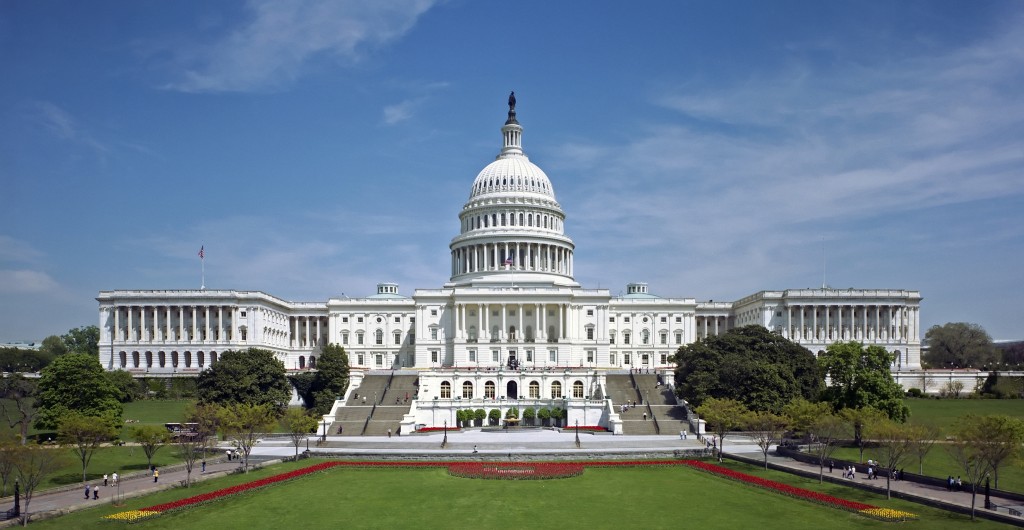
The countdown is one — Congress has only a few days left to avert another government shutdown. Lawmakers have until Friday, December 11 to pass a massive, catchall spending bill called an omnibus that will fund the federal government until after the presidential election. Negotiators are aiming to release the text of the massive legislation on Monday. On Monday and Tuesday, the U.S. House of Representatives is in session and will consider two bills under suspension of the rules. Among those bills is: H.R. 158: the Visa Waiver Program Improvement Act, which prohibits individuals who have been to specified nations such as Syria and Iraq from entering the United States unless they are interviewed by U.S. officials and get a regular visa, even if they are from countries that participate in the Visa Waiver Program (which allows citizens from 38 countries to travel to the U.S. without a visa). Alabama co-sponsors: Rep. Bradley Byrne (AL-01); Rep. Robert Aderholt (AL-04) On the floor of the U.S. House of Representatives the remainder of the week: H.R. 2130: Red River Private Property Protection Act. The bill requires the Bureau of Land Management to sell roughly 30,000 acres of federal land along the Red River, which forms part of the border between Texas and Oklahoma, with current and adjacent property owners to have right of first refusal to purchase the land. Alabama co-sponsors: None FY16 Omnibus. The House may consider an omnibus appropriations legislation comprising all 12 regular appropriations bills that would fund the entire government for the remainder of FY 2016. Current funding expires on Friday, Dec. 11. Conference agreement on H.R. 644: a trade enforcement measure that passed each chamber earlier this year during consideration of other trade legislation, including the Trade Promotion Authority (TPA), that were eventually signed into law. H.R. 644 includes numerous provisions to facilitate trade and strengthen enforcement of U.S. trade laws, including U.S. intellectual property rights and anti-dumping and countervailing duty laws. Tax Extenders. House and Senate negotiators are reportedly close to reaching agreement on extending or retroactively renewing dozens of business and other tax provisions that are scheduled to soon expire or that expired at the end of 2014. Reconciliation. The House may consider the Senate amendment to H.R. 3762, the House-passed reconciliation measure that would repeal major portions of the Obamacare. As originally passed by the House in October, the measure repealed Obamacare’s individual and employer mandates, the medical device tax, the “Cadillac” tax on high-value employer health care plans, and the Prevention and Public Health Fund. It also defunded Planned Parenthood for one year. Last week, the Senate passed an amended version, by a 52-47 vote, which added provisions to limit the law’s expansion of Medicaid and repeal the tax subsidies for purchasing insurance on the state exchanges, as well as several other taxes under the law.
State Auditor Jim Zeigler: On foreign policy, President Obama is no FDR
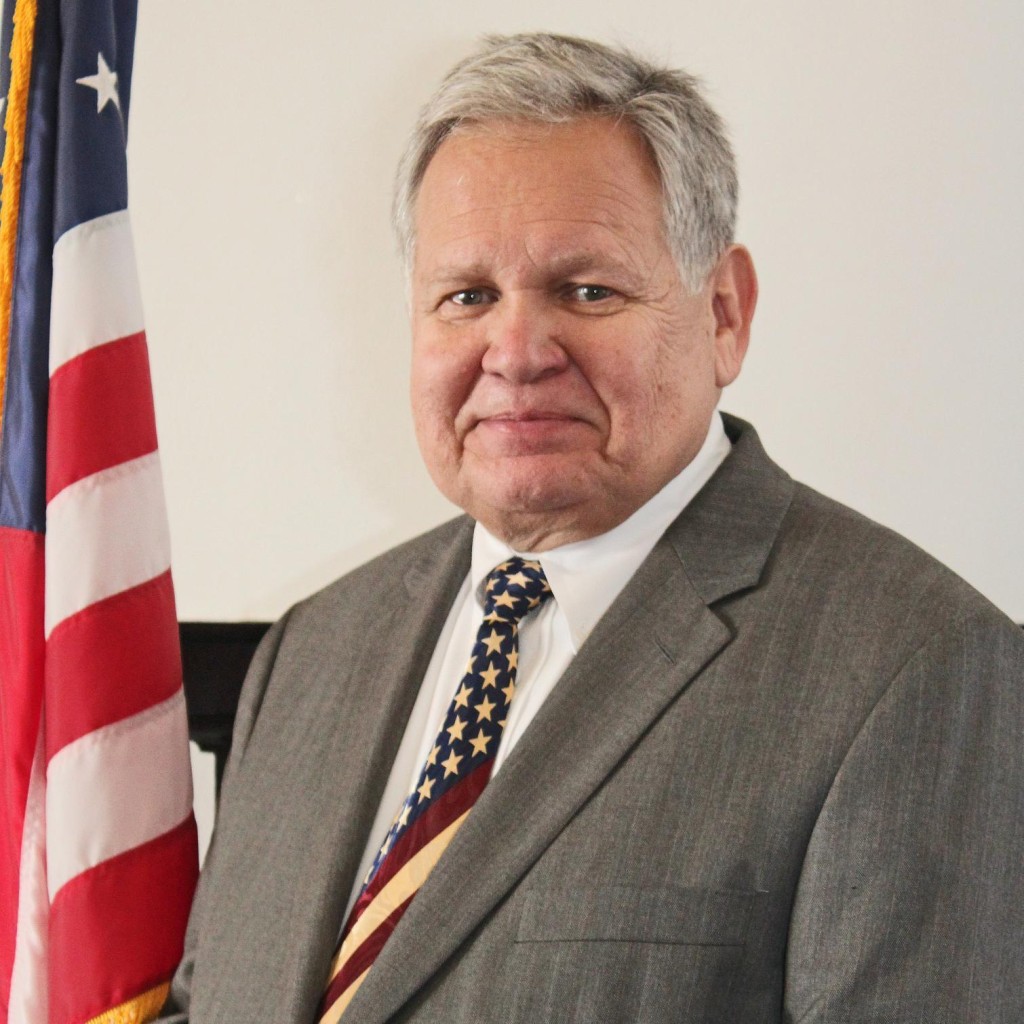
Alabama State Auditor Jim Zeigler, never shy with his thoughts on politics, took the occasion of President Barack Obama‘s speech Sunday night to compare the address to President Franklin Roosevelt gave on the eve of the Second World War. The result? No comparison, as Obama’s rhetoric falls far short, said Zeigler. “On this Pearl Harbor Remembrance Day, President Obama’s oval office speech cries out for comparison with the Presidential speech given Dec. 8 of 1941,” said Zeigler. “Obama announced no new military strategy, gave no clear plan for protecting America, and continued to blame Americans. Contrast the Franklin Roosevelt speech a day after the Pearl Harbor attack.” Zeigler says the world stage today is not unlike that of 74 years ago, when Nazi Germany’s incursions into eastern Europe were continuing unabated and fascist leaders in Italy and Japan were pressing their neighbors and threatening the global status quo. Zeigler quoted from FDR’s historic speech from the day after Pearl Harbor, when the President addressed Americans and an embattled world which had passed the point of no return. “Yesterday, December 7, 1941—a date which will live in infamy—the United States of America was suddenly and deliberately attacked by naval and air forces of the Empire of Japan,” said Roosevelt, in a turn of phrase inscribed in world history. “The United States was at peace with that nation, and, at the solicitation of Japan, was still in conversation with its government and its emperor looking toward the maintenance of peace in the Pacific,” Zeigler quoted Roosevelt. “Indeed, one hour after Japanese air squadrons had commenced bombing in the American island of Oahu, the Japanese ambassador to the United States and his colleague delivered to our secretary of state a formal reply to a recent American message. While this reply stated that it seemed useless to continue the existing diplomatic negotiations, it contained no threat or hint of war or armed attack,” said Roosevelt, in line of rhetoric led to a trope of perceived “sneaky” Japanese behavior that persisted long afterward, culminating in internment for thousands of immigrants from the island nation. Zeigler provided a link to the full speech, which can be found here. The statement Monday was far from the first time Zeigler had criticized Obama and his administration. Zeigler recently wrote an op-ed in support of Donald Trump‘s 2016 White House candidacy, calling him the “un-Obama” along the way to critiquing the administration’s “dumb” Iran deal and saying the government is best run by “a business tycoon, not a community organizer,” a dig at Obama’s past as an activist. Zeigler, who holds a unique ombudsman-like office elected statewide, had mostly stuck to state politics of late, however. The auditor has decried the removal of former Govs. George and Lurleen Wallace‘s official portraits from the Capitol rotunda, the state’s closure of half a dozen state parks amid budget cuts, as well as in favor of reimbursement a state scholarship plan fund and other sundry state issues.
Bradley Byrne: Making Congress work again
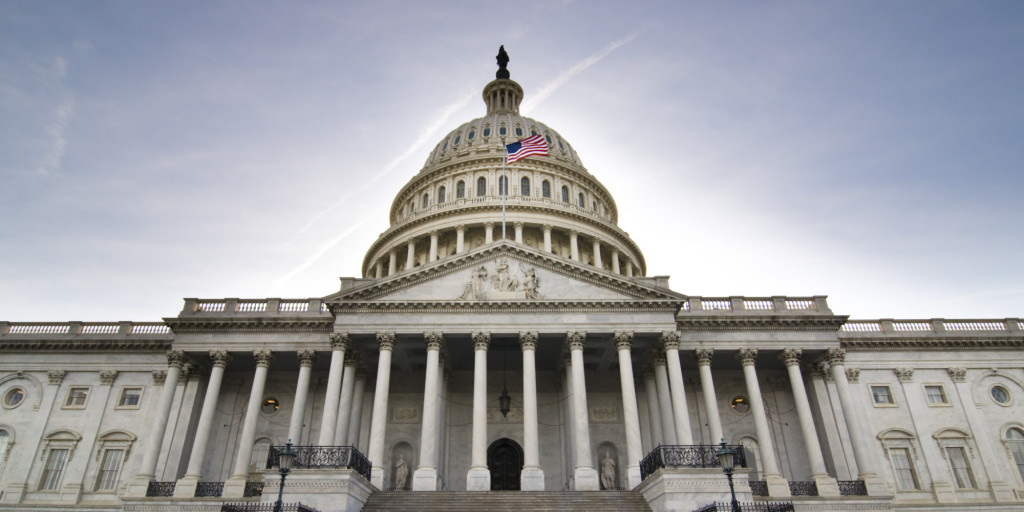
If you listen to national media outlets, all you ever hear is how Congress is completely broken and dysfunctional. While that narrative is right at times, last week was a bright spot when it comes to working together and passing long-overdue reforms. The House and the Senate earlier this year each passed separate bills to set policy for our nation’s K-12 education system and to fund our highway system, respectively. Since different bills were passed, Conference Committees made up of both House and Senate members were formed to work out the differences. Well last week, these Conference Committees each reached consensus and put forward two conservative, reform-focused bills that were long overdue. Let’s first look at the education bill. As you may know, for the last decade, our education system has been governed by a law known as No Child Left Behind. While it was written with good intentions, this law put heavy mandates and requirements on our local schools. Our education system has struggled under this heavy, top-down approach. As a member of the House Education and the Workforce Committee, I have long advocated for getting the federal government out of our local schools. I want to see local teachers, parents, and administrators given more control. That’s exactly what we accomplished last week when we passed the Every Student Succeeds Act. This bill gets Washington bureaucrats out of the way and empowers local teachers, principals, and administrators. The legislation achieves these goals by reducing the federal government’s role in education and restoring control back to the states and local school districts – where it belongs. I hear a lot from parents in Southwest Alabama who are concerned about the Common Core standards. The Every Student Succeeds Act actually includes strong language prohibiting the federal Secretary of Education from influencing or coercing states into adopting Common Core. It makes clear that it is solely a state’s responsibility to set academic standards and assessments. This is a huge win for educators and students. The bill also repeals the one-size-fits-all federal accountability system known as “Adequate Yearly Progress” and allows states and school districts to set their own academic standards and testing requirements. Without these reforms, we would continue to allow the Obama Administration and the federal government to dictate education policy to the states. The Every Student Succeeds Act passed the House with broad bipartisan support, and the President is expected to sign the bill. The second major accomplishment last week was on a long-term highway bill. The bill, known as the FAST Act, represents the first highway bill lasting longer than two years since 2005. For over two years now I have called for a new, long-term highway bill so we could move forward with important highway projects in Southwest Alabama like building the I-10 bridge, improving Highway 98 in north Mobile County, and four laning Highway 45 in Washington County. The fiscally-responsible highway bill is fully paid for and rejects Democrats’ efforts to raise the gas tax. The bill also includes a new program for Nationally Significant Freight and Highway Projects, which can likely be used to help pay for the I-10 bridge project. The highway bill passed the House by a vote of 359 to 65 and the Senate by a vote of 83 to 16. Just like the education bill, the highway bill was a great example of Republicans and Democrats working together in a bipartisan way. Many serious issues still require urgent action, but I think it is important to realize that Congress is making progress on important national priorities like strengthening our education system and improving our nation’s highway system. Bradley Byrne is a member of the U.S. Congress representing Alabama’s 1st Congressional District.
Presidential Primary Brief: 336 days until Election Day
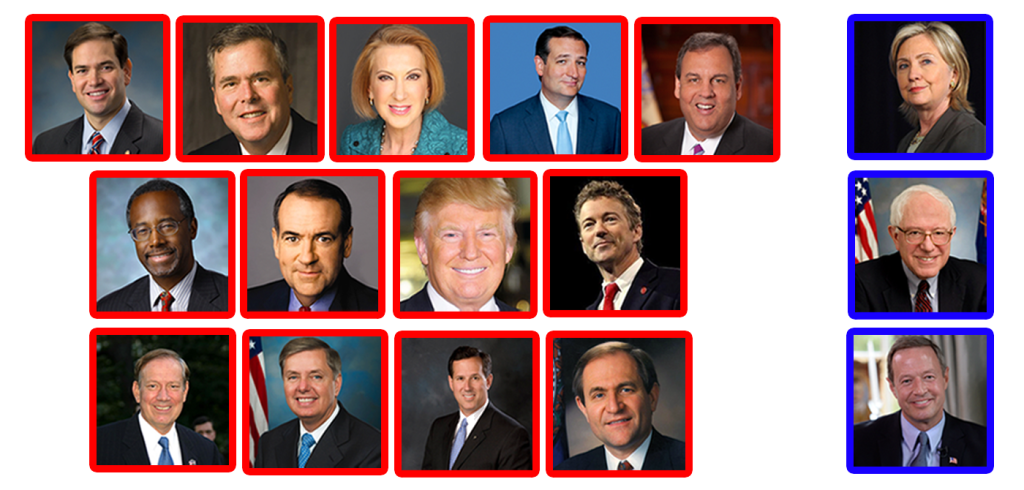
143 days until AL Presidential Primary 336 days until Election Day Convention Dates: Republican July 18-21 2016, Democratic July 25-28 2016 Weekly Headlines: CNN denies Trump’s demand to donate $5M, risking debate boycott Former New Hampshire Union Leader editorial page editor backs Rubio Poll: Clinton expands favorability lead over Sanders Press Clips: Lindsey Graham blasts Ted Cruz at D.C. forum (USA Today 12/3/15) Lindsey Graham, a long-time critic of Republican front-runner Donald Trump, has broadened his attack to include Ted Cruz. Both Trump and Cruz are using “garbage” rhetoric on immigration that will cost Republicans a general election by alienating the large and growing Hispanic population, the South Carolina senator told the Republican Jewish Coalition on Thursday. Graham also criticized Cruz for opposing efforts to remove Syria’s Bashar al-Assad from power, saying the Texas senator has changed his position in a way that will damage U.S. hopes of destroying the Islamic State, also known as ISIL. How demographics will shape the 2016 election (FiveThirtyEight Politics 12/3/15) Republicans contend that the 2016 election will be about Americans’ desire for change after eight years of a Democratic president. Democrats hope the election will tell a different story of change: a continued march toward a more diverse electorate that is ever more hostile to the GOP’s Electoral College fortunes. We’ve built an interactive tool to help you draw your own conclusions about whether, as is often said, demographics truly are destiny. You can use it to see how changes in turnout and partisanship within five demographic groups would affect the outcome of the 2016 election. Paying homage to the BBC’s iconic tracker of vote swings in British parliamentary elections, we’re calling it the 2016 Swing-O- Matic. Michael Bloomberg for GOP candidate (US News & World Report 11/30/15) Is there a man who can save the party of Republicans from themselves? There may be one, but only one. His name is Michael Bloomberg, and he used to be a Republican (when he was mayor of New York) and a Democrat before that. Now Bloomberg is an independent waiting to be asked to dance by a party that is taking American politics and values down. The 2016 field of candidates has been a summer circus, but we aren’t laughing anymore at Donald Trump, Ben Carson, Ted Cruz and the dark rhetoric they (and others) spew against the American traditions of immigration and religious tolerance. By the way, didn’t Trump marry an immigrant woman once or twice? I thought so. Trump calls for targeting Islamic State Fighters’ families (The Express Tribune 12/3/15) Republican presidential front-runner Donald Trump said on Wednesday his plan for combating Islamic State (IS) militants involves targeting not just the group’s fighters but also their families. “When you get these terrorists, you have to take out their families,” Trump said on Fox News. “They care about their lives, don’t kid yourselves.” Trump said if he were president, he would try to avoid civilian deaths in going after the militant group, but he said the Obama administration was “Fighting a very politically correct war.” Christoph Wilcke of Human Rights Watch said in response to Trump’s comments that military forces legally can only target combatants. “The family members of fighters are civilians and cannot be targeted,” he said in an email. Mass shootings reveal sharp partisan divisions ahead of 2016 elections (Washington Post 12/3/15) Two mass shootings less than a week apart have quickly highlighted how guns, national security, abortion and the threat of terrorism are deepening the nation’s political fault lines ahead of next year’s election. In essence, the events provided each side of the partisan divide with mirror-image, poster-child suspects who reflect their views of the biggest threats to Americans’ safety: a gun-wielding, white abortion opponent in Colorado and two heavily armed Muslims in California with possible ties to terrorism. Jeb promises he’d ‘whoop’ Clinton in the 2016 election (TPM 12/3/15) Republican presidential candidate Jeb Bush said Thursday that he’d “whoop” Democratic presidential candidate Hillary Clinton if they were nominated by their parties in the 2016 election, The Hill reported. Bush made his comments during speech in Washington D.C. to the Republican Jewish Coalition, the publication reported. “Should I win this nomination I will take it to Hillary Clinton and I will whoop her,” Bush was quoted as saying. Can Evangelicals swing 2016 for GOP, as Cruz says? (Wall Street Journal 11/30/15) For months, Sen. Ted Cruz has been hovering in the middle of the GOP presidential campaign pack, waiting for his moment—and honing his argument for why he has the strategy and appeal that can win for Republicans in 2016. In a nutshell, the Cruz case is this: There is an army of silent evangelical voters out there, and I can mobilize them. The country has 90 million evangelical Christians, 54 million of whom stayed home on Election Day in 2012, he says. If I can get just 10 million of the no-shows to vote for me in 2016, we win. Trump, Carson flop with Jewish Republicans (Politico 12/3/15) Donald Trump joked about Jewish stereotypes, declined to affirm his support for a united Jerusalem, and told his audience they wouldn’t back him because he did not want their money. Reading from a prepared text, Ben Carson repeatedly pronounced the name of the Palestinian group “Hamas” as if it were a delicious spread made with chickpeas. The performance of these two outsider candidates left attendees at Thursday’s summit of the Republican Jewish Coalition amused, but not impressed. With the RJC, an influential group of donors and activists that prioritizes American policy toward Israel, the retired neurosurgeon and the businessman faced a more politically sophisticated crowd than either is used to, and one more concerned with the nuances of foreign policy.
UAB testing new drug to prevent deaths due to blood loss

Scientists at the University of Alabama at Birmingham are carrying out the first Phase 1 human trials of a drug developers hope will keep patients with traumatic injuries from dying due to severe blood loss. The ambitious new pharmaceutical – a synthethic molecule derived from the female hormone estrogen – can help stop hemorrhaging in arenas like overseas battlefields or dangerous domestic settings. The study comes with a three-year, $10 million contract from the U.S. Department of Defense’s Combat Casualty Care Research Program and is a boon to the university’s medical and health programs. The study is based off the original work of a UAB faculty researcher and Department of Surgery professor Dr. Irshad H. Chaudry. Chaudry, co-principal investigator on the prized DoD contract, drew praise from his colleague as the institution announced the ongoing clinical work on the drug, called EE-3-SO4 for purposes of the study. “The work of Dr. Chaudry and colleagues showed that EE-3-SO4 is extremely effective in improving cardiovascular functions and boosting survival rates following injuries with extreme hemorrhage,” said principal investigator Mansoor Saleh, M.D., professor in the in the university’s Department of Medicine. “This drug could have major implications for treating trauma, from battlefield injuries to life threatening hemorrhage following any injury. We are excited to be launching the first-in-human studies of this drug that was developed by one of our own here at UAB. This is a classic example of bench-to-bedside translational research,” said Saleh, who also directs UAB’s Phase 1 Clinical Trials Program. According to the University, the prospective drug works in three ways: It helps the heart beat more efficiently, enabling it to fully expand and contract while pumping to maximize blood flow. It lowers resistance to blood flow to vital organs, and then gradually elevates blood pressure and promotes sufficient blood flow throughout the body. It recruits fluid from surrounding tissue, increasing blood volume to compensate for blood loss from the wound or injury. The contract also has a tie-in with the school’s business college. UAB’s B.L. Harbert Institute of Innovation and Entrepreneurship is managing two pending U.S. patent applications of EE-3-SO4, on which Dr. Chaudry is listed as an inventor. Securing such a patent would be a landmark for the institution. The UAB press center has put together a backgrounder on the research science that led to the invention of the potentially game-changing drug, which can be found here.
In wake of homicides, Young Democrats take on violent crime

A rash of deadly violence in Jefferson County has brought crime to the forefront of all Jefferson County citizens’ minds. The county’s chapter of the Young Democrats may not be the first organization you might think of to help counter the recent spate of Birmingham homicides, but they are out in force in Jefferson communities trying to work with their neighbors to stem the tide of violence. “It disturbed me, the amount of homicides we’ve had in the city of Birmingham throughout this past year,” Jefferson Young Democrats leader Le’Darius Hilliard said. “It is our responsibility as citizens (to) take back control of our neighborhoods,” Hilliard added, just a day after two homicides were reported in the area, including at the Tom Brown Village public housing community and another along Ninth Court South. Hilliard says a return to more neighborhood-conscious days, where individuals took accountability for a block or section of their community, could help bring more awareness and head off conflicts before they boil over. “In the days of leadership in the past, we had block captains and our neighborhoods associations were blooming,” Hilliard said. Though the Young Dem admits reducing gun violence in Birmingham will be no easy task, he said Sunday a good place to start is just helping people find common cause in their community. “Where is the respect? Where is the love?” Hilliard said. “I believe we’re just lacking that.” Hilliard says he met with leaders of church congregations Friday last week, and will continue to do so as the Birmingham homicide rate spikes. Government statistics show the crime rate in the Magic City is about 50 percent higher than the state average, about 26 percent versus Alabama’s 17 percent overall. Data from the Alabama Law Enforcement Agency shows crime was down 5 percent in 2014 compared to the year prior, with an average of 451 reported crimes a day.


